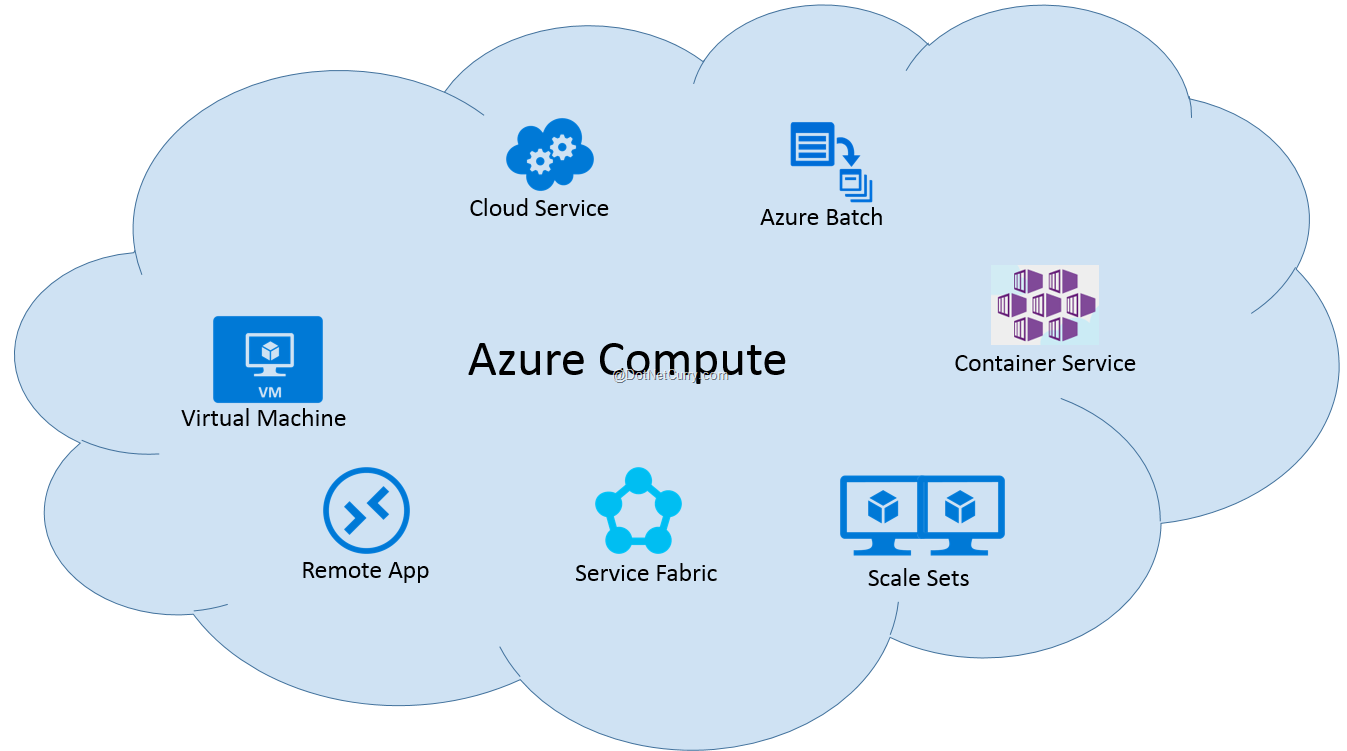In this blog, I have covered various options for running Azure Compute workloads in detail, which includes Virtual Machines, Azure Container Instances, Azure Kubernetes Service (AKS), App Service, and Serverless Computing
Azure Virtual Machine
The virtual machine is an initial IaaS stage in Azure compute options. This is the most common compute service which is used on all cloud platform widely. This service came in IaaS (Infrastructure as a service ). So when we create a virtual machine on an Azure portal then we have to deal with some important configuration parameters:
- The virtual machine gets assigned a nic during deployment
- The Network Interface gets public and private IP address
- The virtual machine can have multiple disks and these disks are VHD files
Some important characteristics of the virtual machine are:
- You don’t have to manage the underlying physical servers.
- Deploy any type of workload
- You can stop the virtual machine whenever you don’t want the virtual machine to run
- You can also control the traffic flow using network security groups
- You can also monitor different underlying metrics like CPU Utilization and Network Utilization

Azure Container Instances
Containers are used for deploying Microservices applications in an easy way. It’s difficult to talk about microservices without talking about containers. Azure Container Instances (ACI) offers the fastest and simplest way to run a container in Azure. You don’t have to manage any virtual machines or configure any additional services. It is a PaaS offering that allows you to upload your containers and execute them directly with an automatic elastic scale.

Check out: Our previous blog post on What Are Containers?
Azure Kubernetes Service (AKS)
Azure Kubernetes Service (AKS) is a managed Kubernetes service in which the master node is managed by Azure and end-users manages worker nodes. Users can use AKS to deploy, scale, and manage Docker containers and container-based applications across a cluster of container hosts. As a managed Kubernetes service AKS is free – you only pay for the worker nodes within your clusters, not for the masters. You can create an AKS cluster in the Azure portal, with the Azure CLI, or template-driven deployment options such as Resource Manager templates and Terraform.

Azure App Service
In terms of SaaS, Azure App Service Plays an important role in Azure compute options. Azure App Service is coming under SaaS (Software as a Service). Using Azure app service you can run your application on the cloud. It is not only used to host apps it can also host REST API’s mobile backends. You can also develop the applications in a language like .NET, NET Core, JAVA, Ruby, Python, etc. In-app service you can use features like load balancing auto-scaling, etc.
Your apps in the app service run in an App Service plan. An App Service plan defines compute resource for your web app if you have excess capacity in your plan you can run multiple apps on a single app service plan
When you create an App Service plan in a particular region in your subscription, a set of computing resources are created for that plan in that region, An App Service plan is nothing but a bunch of virtual machine running behind the scenes but they are completed abstracted from you as an App Service plan.
Benefits Of Azure App Service
- Use multiple language and frameworks
- You can easily set up CI ( Continous Integration) and CD (Continous Deployment)
- You can Scale up or down as per your need
- You can use application template for azure marketplace

Azure Serverless Computing
What if you spending all your time in building and deploying the app and none of your time managed in your servers, Serverless computing lets you do just that because the infrastructure that you need to run and scale apps is managed for you by a third party like cloud AWS and GCP. So you only focus on creating and deploying apps.
Serverless computing doesn’t mean there is no server, Of course, there is a server but you don’t have to worry about that in serverless computing, infrastructure is managed for you. Serverless computing is an abstraction of servers, OS, and infrastructure. It is driven by reaction to events in triggers in near real-time. Service Bus, Event Grid, Azure Function, Logic Apps are a part of serverless computing.

